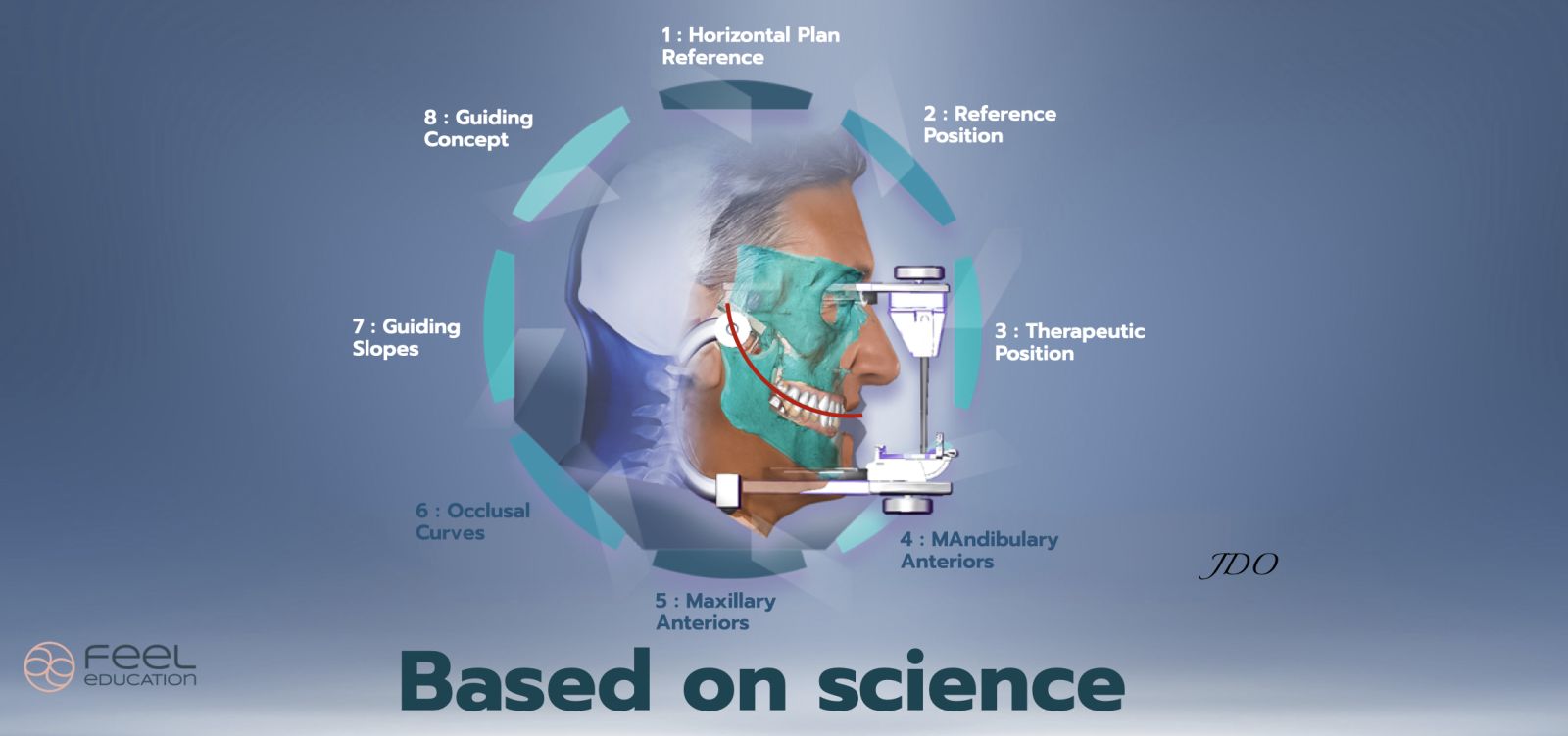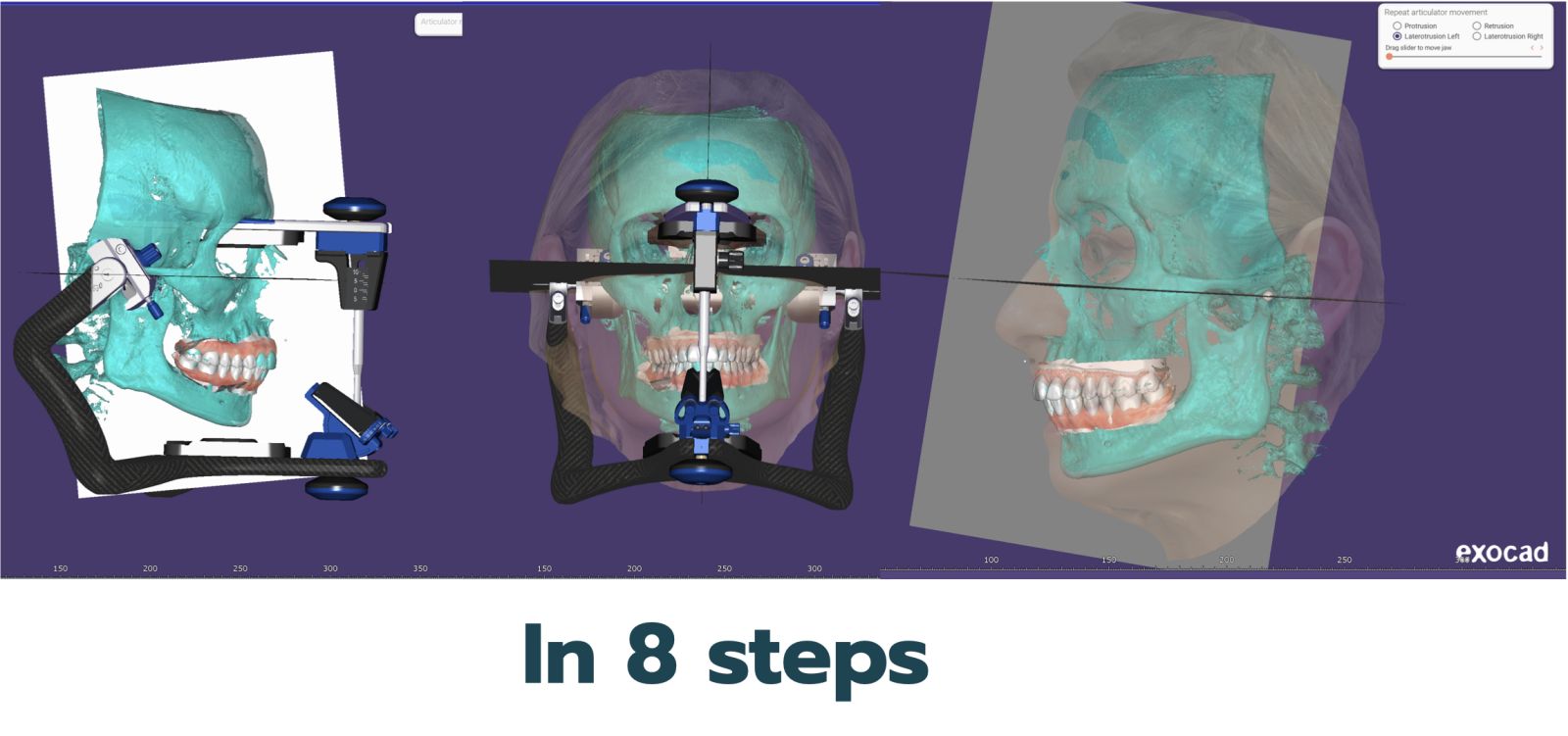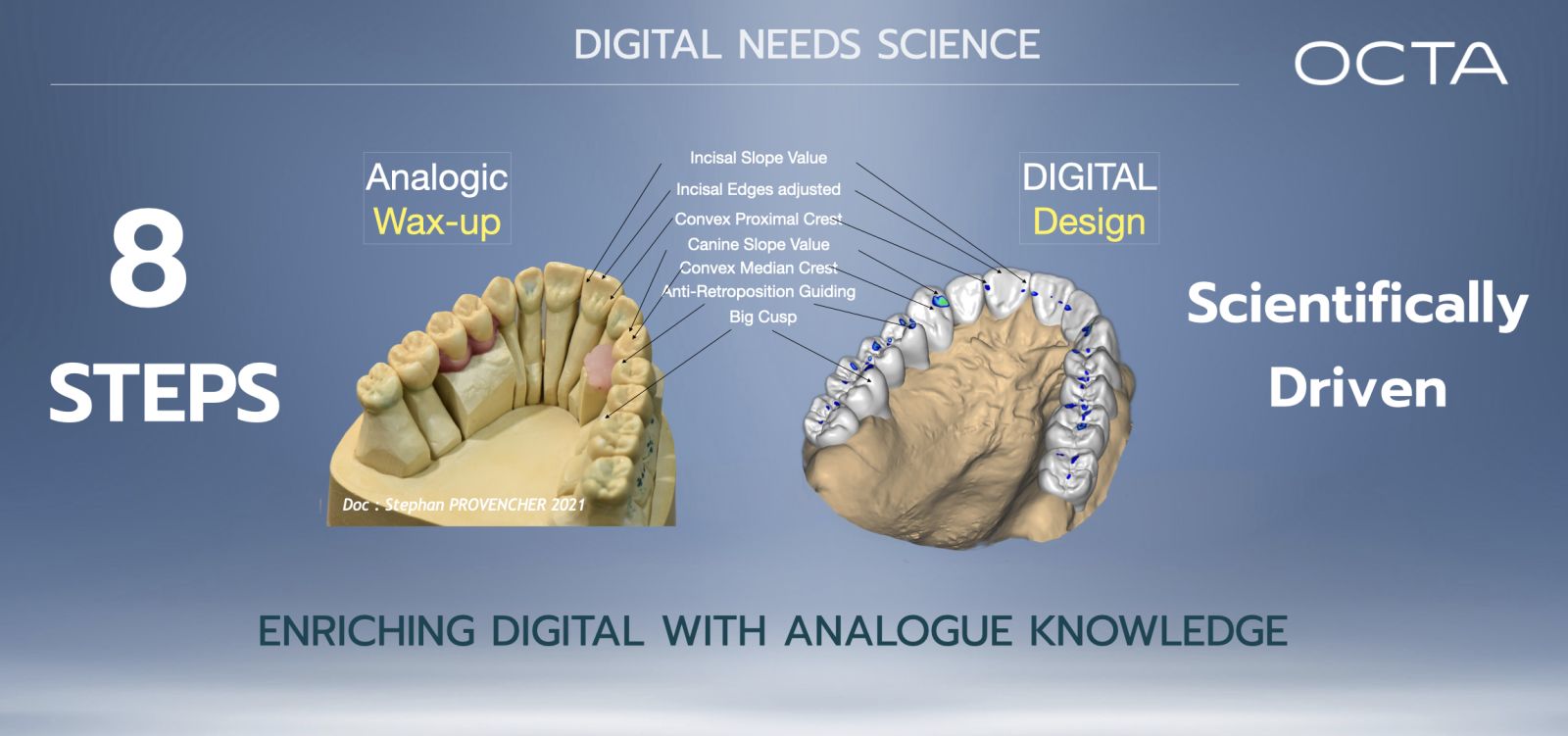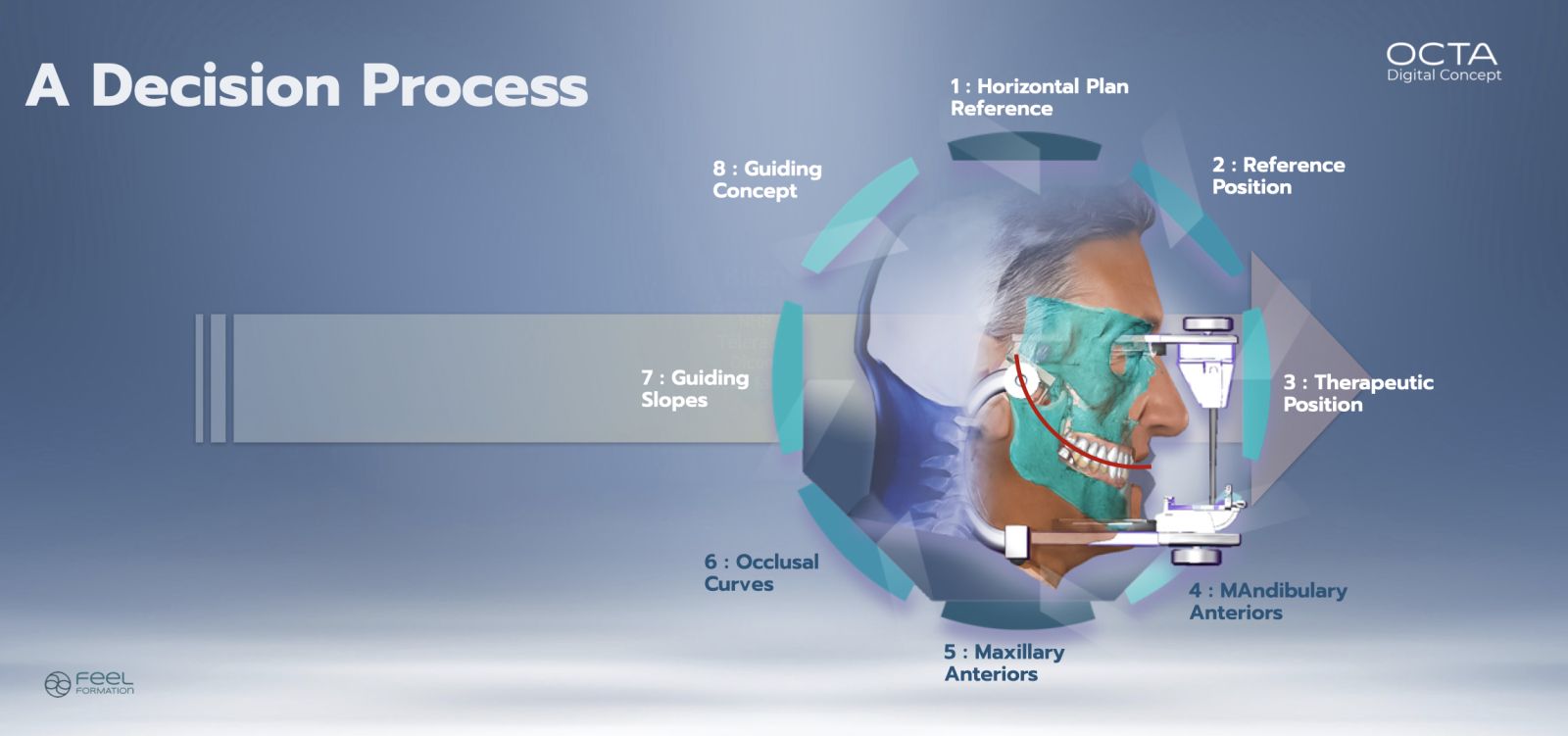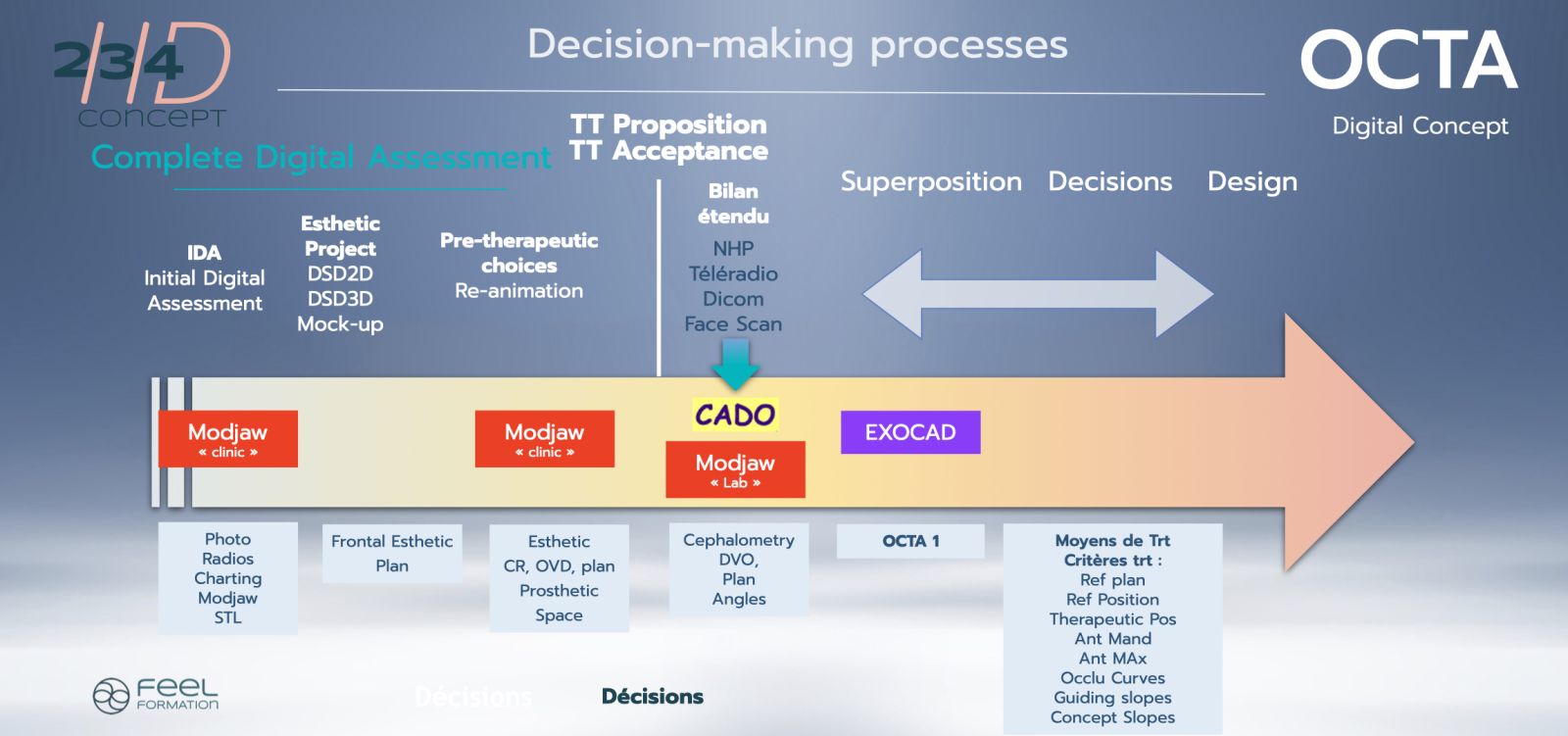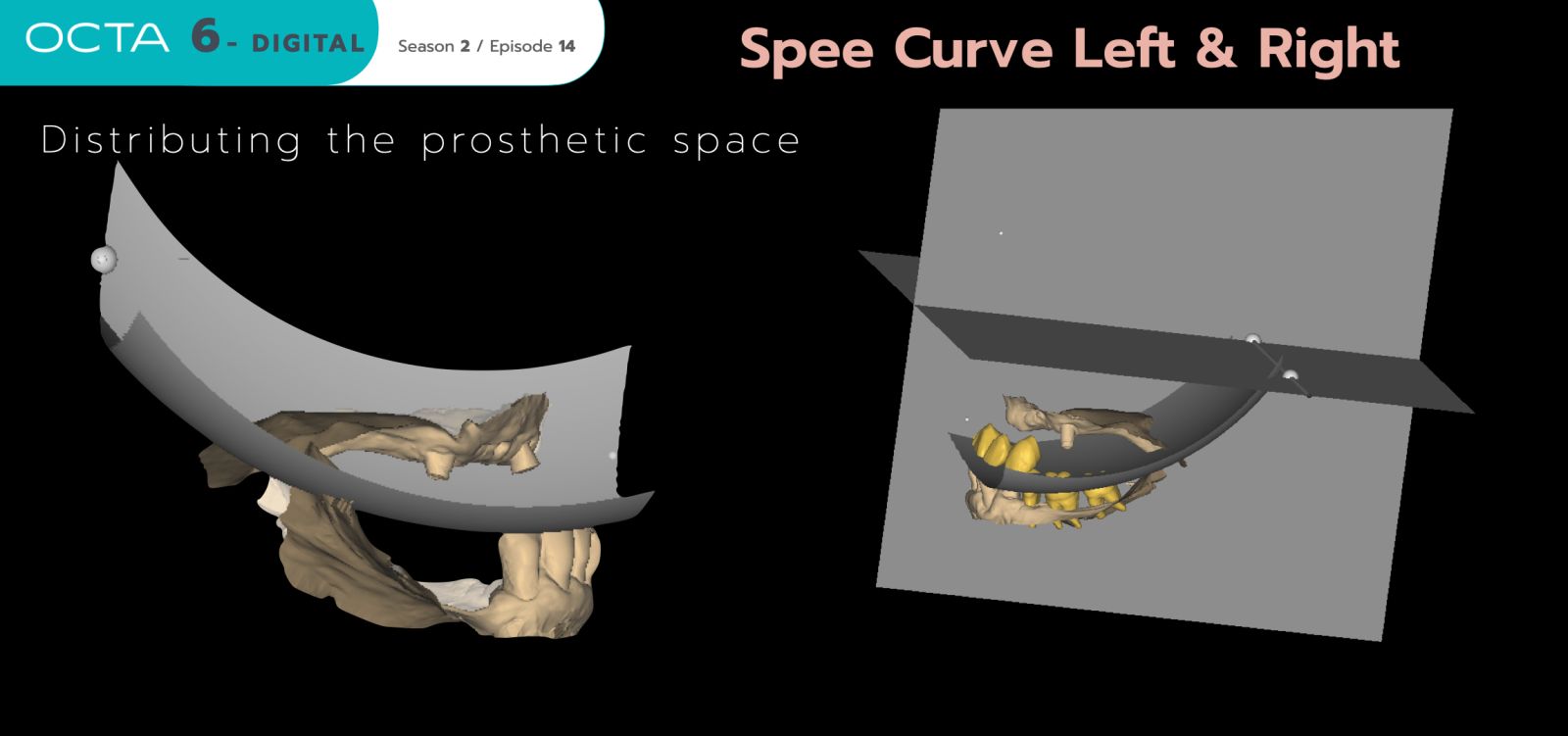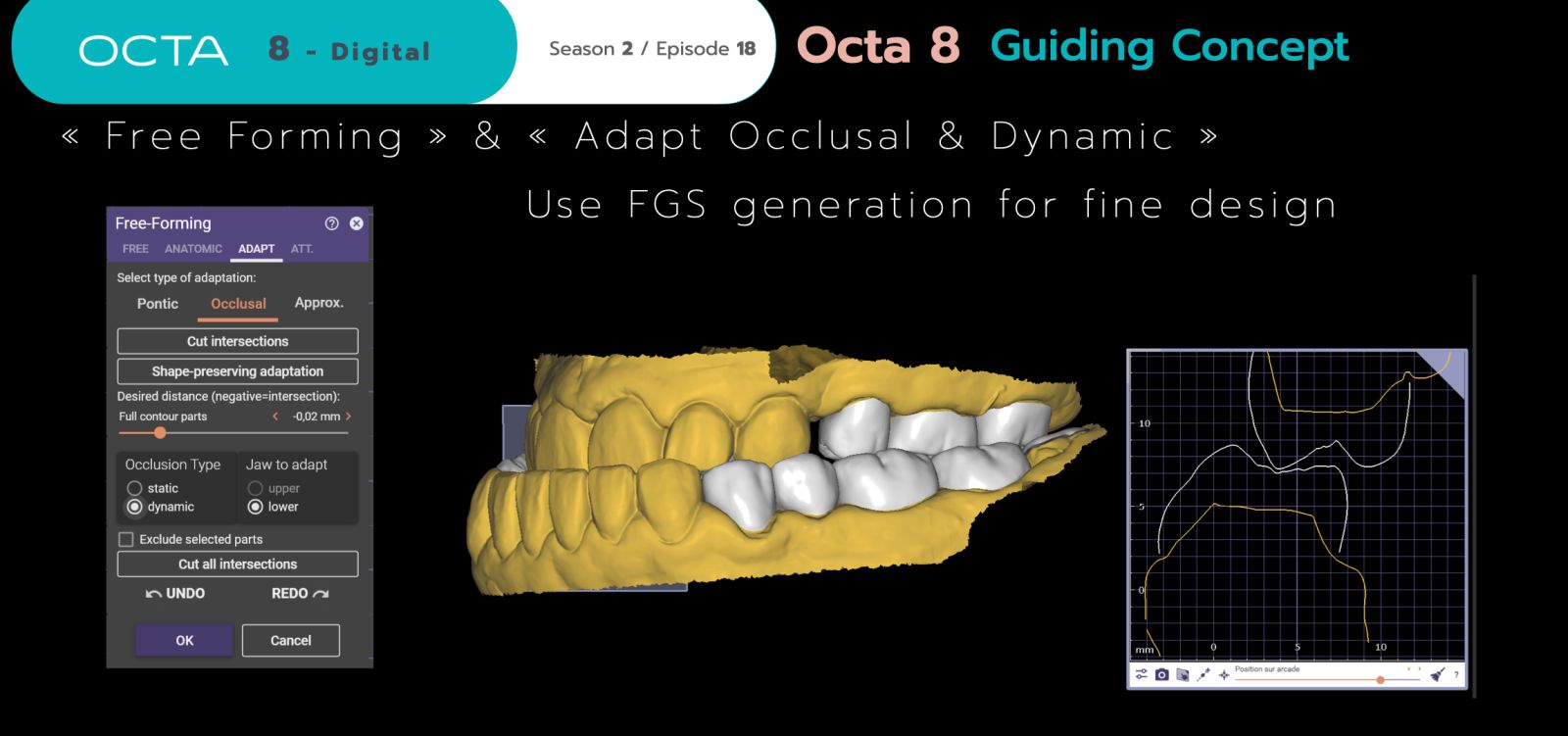
Training in digital dentistry through 2 innovative concepts: The 2/3/4D Concept and OCTA, to secure and accelerate your practice
Training in digital dentistry
through 2 innovative concepts:
The 2/3/4D Concept and OCTA,
to secure and accelerate
your practice
Combining 2/3/4D and OCTA means combining structure and precision for a comprehensive, optimized approach to digital dentistry.
Combining 2/3/4D and OCTA means combining structure and precision for a comprehensive, optimized approach to digital dentistry.
See you on Thursday, January 22 at the Burdigala Hotel in Bordeaux for a day of conferences
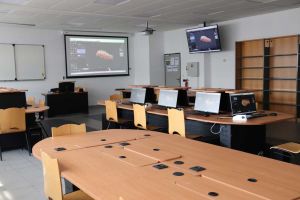
In-person training
– 3 days
October 08, 09 & 10 2026
Montpellier-France
In partnership with the Faculty of Dentistry of Montpellier, this training takes place within the Faculty's Technological Hub, an exceptional venue for this experience.
> Complete package: €2,580
> Single day: €960
+ 1-year access to the training replay via e-learning
The entire content will be recorded, and you will have access to the replay as well as the detailed training booklet.
OCTA digital concept: analog or digital occlusal reconstruction control
Teeth clash, as is their vocation, with forces applied that are sometimes very significant. Optimizing occlusion, from small restorations to large-scale reconstructions, helps to maintain mandibular function and secure the prosthetic prognosis. The decision must be based on a logic of simplicity.
OCTA is an occlusal-architectural concept that uses a hierarchical organization to clarify the occlusal criteria for extensive prosthetic or orthodontic reconstructions. Faced with the multiplicity of parameters to be integrated, L'OCTA offers a genuine thought process for better decision-making, as well as a practical implementation protocol to guide you step by step through the prosthetic or orthodontic stages (in adults).
A standardized chronology for all cases, whether simple or complex, ensures reliable results, often using simple means. This is where digital dentistry really comes into its own: uniform modeling (the same teeth for everyone) is a caricature of physiology.
This standardization is both non-functional and unsightly. Individualized modeling requires an architectonic occlusal framework and a reconstruction guide. With less time spent, less hassle, less stress...; the combination of the OCTA framework and the significant possibilities offered by digital technology means that high-level reconstructions are within the reach of all practitioners and technicians, and therefore of all patients.
Speakers:

Prof. Jean-Daniel ORTHLIEB
Emeritus professor and renowned author, expert in occlusion and digital dentistry.
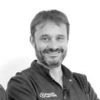
Dr Sébastien Felenc

Dr Josselin Lethuillier

Roseline Hatte
The 2 concepts at the heart of training

Optimized organization, simplified planning, enhanced communication digital
/ 2D : Collection and analysis of initial data
/ 3D : Digital reconstruction of dental arches
/ 4D : Integration of movements
• Streamline patient data collection:
organize and optimize the capture and analysis of clinical information.
• Build and present treatment plans:
develop precise, convincing plans tailored to patients' needs.
• Define the key roles of the digital laboratory:
effective pre-, per- and post-operative coordination to ensure optimal results.
• Involve all members of the dental team:
practitioners, prosthetists, assistants and secretaries work together within a unified vision.
• A common goal: patient satisfaction.
Each member of the team contributes to a treatment focused on patients' needs and expectations.

Safety, precision and fluidity, even in complex cases
+ Standardized protocols for safe, reproducible practice
+ Precise methodology for modeling and reconstructing dental arches.
+ Precise methodology for modeling and reconstructing dental arches.
• A structured methodologybased on proven principles.
Sound scientific basis for each step, guaranteeing treatment accuracy and reproducibility.
Co-construction of clinical and laboratory steps:
Efficient collaboration between practice and laboratory.
3 modes to suit your needs:
• Full Digital mode: full use of digital tools.
• Modjaw-free mode: Integration of available technologies without depending on mandibular dynamics.
Reference-free mode: simplified approach for specific configurations
“Optimize your practice, improve your results and give meaning to every step of your work”.
Why participate in this course?
For all professionals involved in digital dentistry
Dentists using digital tools in their practice, whether novice or experienced.
For beginners: an online refresher course is offered prior to the course.
For experienced dentists: an advanced digital design course is available after the session.
Dental technicians wishing to integrate digital workflows into their working methods
Dental assistants and secretaries who want to better understand and participate in the digital process.
3-day In-person Training
Ocotber 08 to 10, 2026
Montpellier
> Complete package: €2,580
> Single day: €960€
+ Comprehensive procedures booklet provided

Contact & Registration
-
This email address is being protected from spambots. You need JavaScript enabled to view it.

